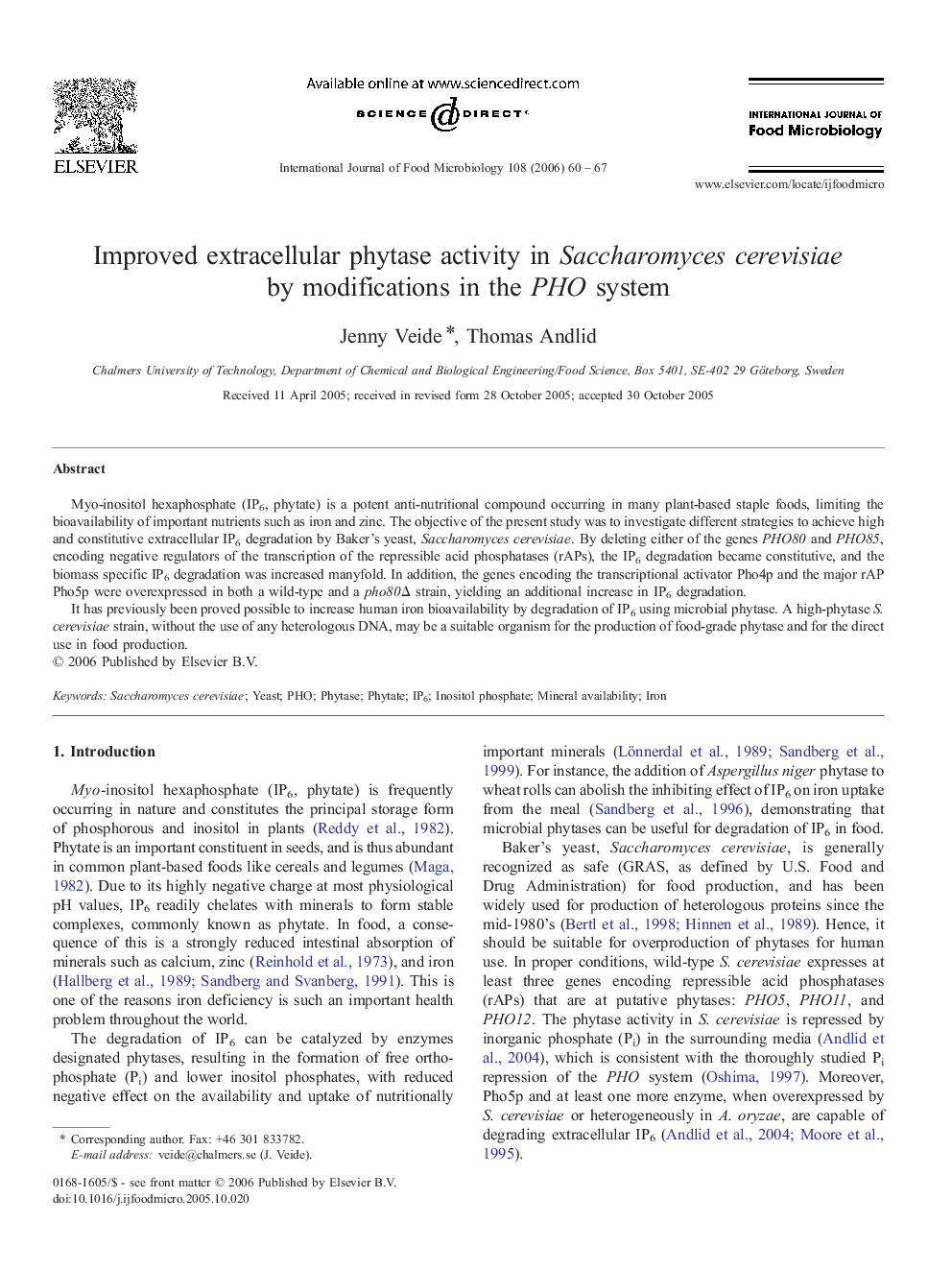| Article ID | Journal | Published Year | Pages | File Type |
|---|---|---|---|---|
| 4369916 | International Journal of Food Microbiology | 2006 | 8 Pages |
Myo-inositol hexaphosphate (IP6, phytate) is a potent anti-nutritional compound occurring in many plant-based staple foods, limiting the bioavailability of important nutrients such as iron and zinc. The objective of the present study was to investigate different strategies to achieve high and constitutive extracellular IP6 degradation by Baker's yeast, Saccharomyces cerevisiae. By deleting either of the genes PHO80 and PHO85, encoding negative regulators of the transcription of the repressible acid phosphatases (rAPs), the IP6 degradation became constitutive, and the biomass specific IP6 degradation was increased manyfold. In addition, the genes encoding the transcriptional activator Pho4p and the major rAP Pho5p were overexpressed in both a wild-type and a pho80Δ strain, yielding an additional increase in IP6 degradation.It has previously been proved possible to increase human iron bioavailability by degradation of IP6 using microbial phytase. A high-phytase S. cerevisiae strain, without the use of any heterologous DNA, may be a suitable organism for the production of food-grade phytase and for the direct use in food production.
